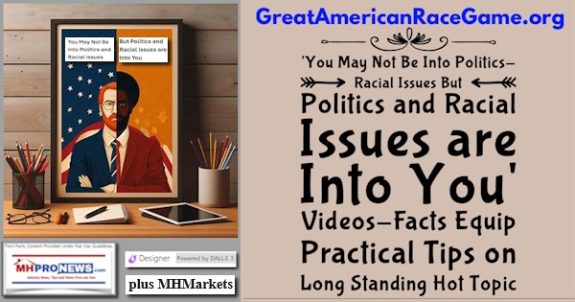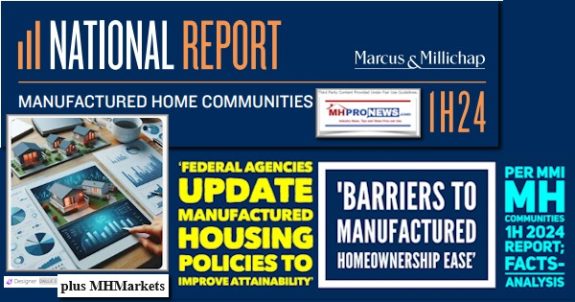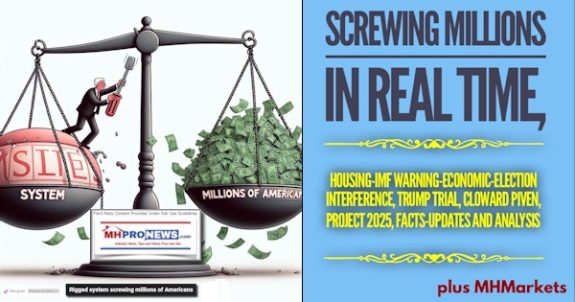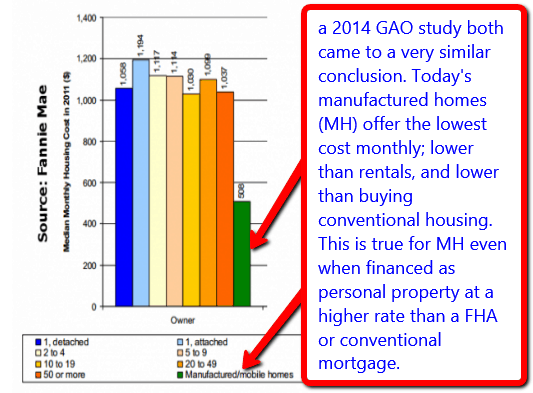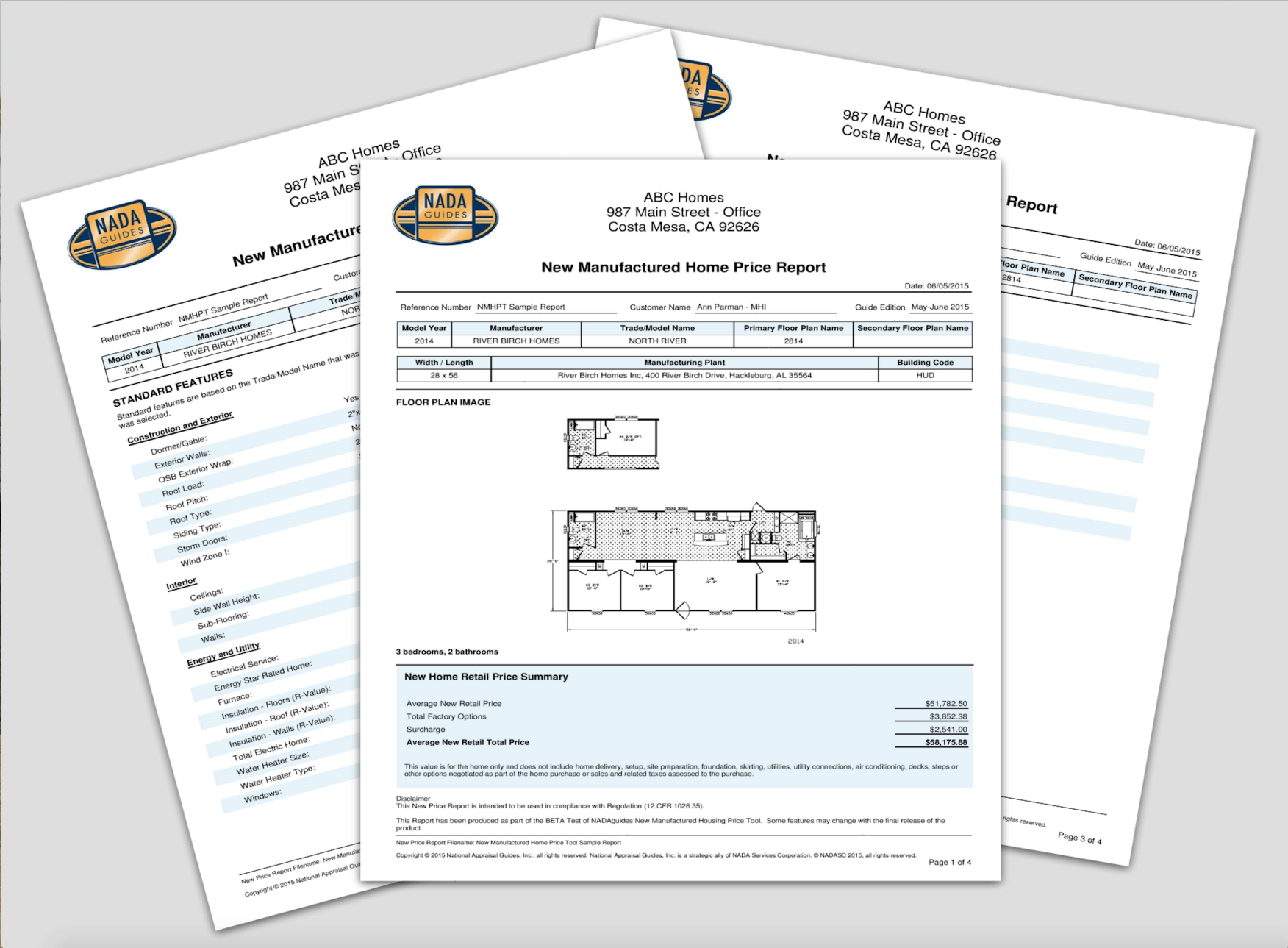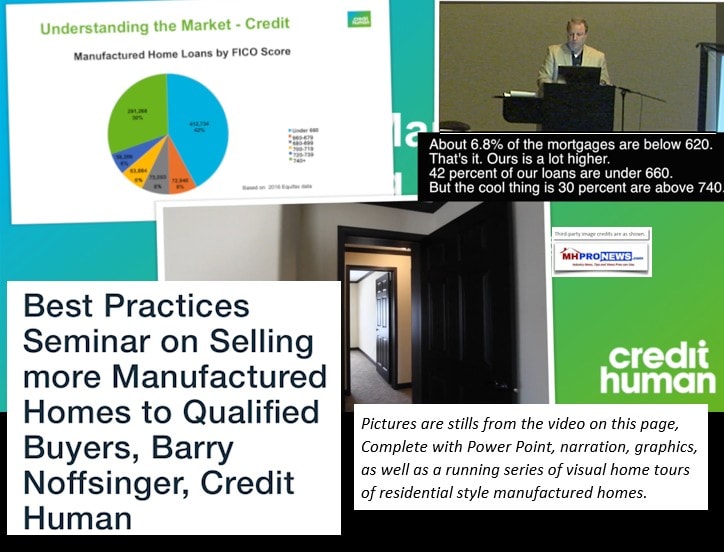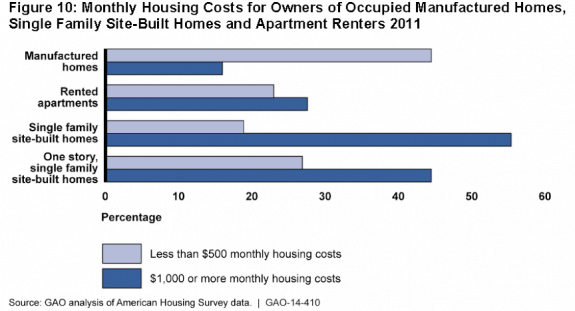by L. A. “Tony” Kovach

This is a great example of how tips or suggestions on topics come in routinely to my email, by phone, text, social media or through iReportMHNewsTips@mhmsm.com. There’s a growing interest among millennials in housing beyond rent! House buying is good for the business – and thus the economy – beyond the purchase of a home. And perhaps most important to MH Pros, searches for our factory-built home industry’s products and Tiny Houses are rising! Meanwhile searches for townhouses and lofts are sliding. Come and see what’s trending!
Let’s give credit to the Think Google team that wrote their fine report.
Before sharing their facts, figures, trends, and data, let’s politely remind Google, public officials, the media and others about the importance of using correct terminology. Yes, if you market online, you want to use the term ‘mobile home’ because it is used more than manufactured housing or modular, manufactured home, etc. But since there have been no mobile homes built in the U.S. since June 15, 1976, it is only proper to call something by its actual name!
I have a simple way of teaching MH residents and home buyers to use that the right words, please remind me to share it at our live – and free – marketing and training session at the 2015 Louisville Manufactured Housing Show!
Next, lets also mention that this research by Google dovetails with National Association of Realtors (NAR), National Association of Home Builders (NAHB), JD Powers and Associates and other research we cite with our contract marketing, web and sales training clients.
For example, the good credit customers are out there shopping 6-12 months in advance! They may not show themselves until relatively close to the time they will buy!
What that means to you is that you must have a LONG TERM engagement method, including CRM. Hey! Some of you aren’t so different, right? You may be surfing my articles for months before you pick up the phone, email, connect on social media or message me – and you do that with others and in your shopping habits too.
Let’s add to what Google’s writers shared by saying that Realtors ® in pockets across the country are increasingly working with manufactured housing! The time to engage more – ALL! – housing professionals in your market is now! If you need help with that, please call or message, as we’ve been part of the process of bringing manufactured housing pros, Realtors ® and investors and other housing pros together successfully a number of times.
Keep in mind that a number of the topics linked below are found on Manufactured Home Living News! Do you want to improve your businesses image, and thus, your sales and profits? Then RSS, email, social media and otherwise share the link to MHLivingNews.com whenever possible. That will help MHPros sell homes. Linking to the Wall Street Journal? Maybe not so much!
Is your website tablet and mobile friendly? We design sites for our clients today that are! You’ll see why this matters below. Okay, let’s dive into Think Google’s interesting report, enjoy.
——— start of Think Google Article ———
House Hunting Season: 6 Key Trends That Search Reveals
House hunting is on the rise. As the weather warmed up this summer, people ventured out of their houses—to look for new ones. Google searches for real estate listings consistently peak in July and this year they were at their highest point since 2008 (chart 1).
Summer is peak season for home buying—a life-changing event for consumers. It means they’ll be purchasing a lot of new products, perhaps ones they’ve never bought before. Habits will shift. Loyalties will form. This is a key moment for businesses—from realtors to retailers—to be relevant and useful. To do that, they need to understand what’s happening in the minds of modern home buyers. What are they looking for? How do they find it? As real estate searching hit a high this year, we took a look at Google and YouTube data to see what we could unlock.

Source: Google Data, January 2008–July 2014, Indexed Search Query Volume, United States.
Those searchers likely won’t be buying right away, and they’re being selective about whom they work with. According to a Google Consumer Survey conducted in April:
- Half of people begin their formal home search 6–12 months in advance, with about three-quarters starting within a year of the purchase.
- Two in three researched prospective agents extensively online prior to working with them.
It’s no surprise that people devote a lot of time and research to buying a home—it’s a major life event. On top of that, it’s likely to happen around other significant moments. For example, people searching about real estate listings are 5x more likely to search about planning for retirement and 4x more likely search about finding child care. These consumers are dealing with a lot of change, and it’s in these moments that shopping habits and brand loyalties shift dramatically. People will buy things they’ve never shopped for (or even knew existed). In this way, big decisions can trigger many smaller ones for years to come. While real estate brokers should care about home buyers, so should CPG brands, luxury retailers, financial services companies and more.
Millennials are (finally!) eyeing to buy
Millennials have been notoriously slow to enter the housing market. “This demographic in particular has been a key part of the missing demand since the recovery began,” says Jonathan Smoke, chief economist at Realtor.com. “As a result of the economic challenges, an increasing number of millennials doubled up with roommates or moved back in with parents and family.” Data shows that there’s reason to be optimistic, though.
- When asked if they planned to purchase a home in the next year, 18–34-year-olds were twice as likely as 35–54-year-olds to say yes (Google Consumer Survey, July 2014).
- Millennial real estate web usage grew 30% from May 2013 to July 2014, and millennial real estate mobile usage grew 81% over the same period, according to an analysis by Smoke of comScore Media-Metrix data.
- A full half of all millennials in the U.S. visited real estate web sites in July and 36% visited real estate web sites or apps on mobile devices, according to Smoke’s analysis. That means millennials are more than twice as likely as the average person in the U.S. to explore real estate information on a mobile device.
“Looking at trends in web traffic, it is clear that mobile usage and real estate visits are increasing for millennials,” says Smoke. “It is likely that we are on the cusp of millennials starting to emerge from mom and dad’s basement.”
Not only is this demographic more likely to use the web, especially mobile, in their search but millennials also spend longer researching a home purchase. When asked how far in advance of a purchase/sale they’d plan to begin a formal search, 83% of 18–34-year-olds said more than six months (versus 73% for those older than 35), per our April Google Consumer Survey. They also have different priorities. Compared to other buyers, millennials care more about aspects such as neighborhood, school district and high-speed internet-ready homes, according to a Move.com survey of U.S. online home searchers conducted in May.
Buyers are using mobile search to find a home
Millennials aren’t the only ones using mobile. As the market heats up, more and more house hunters are relying on their smartphones to stay competitive. In June, mobile phones accounted for 27% of total searches related to buying a home—up 19% since last year (chart 2). “You do see the need to act on listings quickly if you are looking to buy,” says Smoke. The immediacy of mobile helps people stay on top of the market in real time.
- Most people would use their mobile device to do at least one of the following: search for listings, find directions to a house, look for more information on a listing, call or e-mail an agent directly, or watch a video while out looking for a home (Google Consumer Survey, April 2014).
- Searches related to home buying are highest over the weekend when people are likely out touring neighborhoods and visiting open houses (Google Data).
- Mobile queries for open houses grew 36% in June YoY, while desktop searches remained the same (Google Data).
- House hunters used their mobile device most to search for listings and find directions while out looking for a home (Google Consumer Survey, April 2014).
Smartphones and tablets are the tech of choice at home, too. Usage climbs steadily throughout the day and reaches its peak at night—mobile at 6:00 p.m. and tablet at 11:00 p.m (ET)—after the kids have gone to bed and parents have time to catch up.

Source : Google Data, January 2011–June 2014, Mobile Share Query Volume, United States.
When potential buyers see a house they like, their first question is often “Can I afford it?” Increasingly, they’re using mobile to do the math. So far this year, one-quarter of Google searches for mortgages have been on mobile devices, and terms such as “mortgage calculator” make up half of those searches.
Clearly, the place to reach home buyers is on mobile. Marketers can help them find what they’re looking for through mobile ads, and extensions such as location and click-to-call take this a step further.
Video is also an important opportunity on mobile, with one in five future home buyers indicating they’d use a mobile device to watch a video (Google Consumer Survey, April 2014). On top of that, views of real estate videos are up 13% YoY on YouTube. Often, these are home tour videos that let prospective buyers get a room-by-room view of a listing.
More are using search to find a mobile home
While the American dream of homeownership is alive and well, the type of homes people are looking for is changing. Over the past few years, there’s been a palpable shift from big and sprawling to small and versatile. Mobile homes and small houses are an increasingly desirable option that could be the ticket to financial freedom. According to Google data:
- “Mobile home”-related searches have been on the rise since 2011.
- Interest in the “small house movement” has been climbing since 2004.
- Related searches for “loft” and “townhouse” have been declining over the past decade.
This interest in mobile homes is being driven by “downsizing retirees and skyrocketing real-estate prices in certain areas, which are prompting more people to consider trailer living a (relatively) affordable option,” according to the Wall Street Journal.
These aren’t your parents mobile homes, though. Some are attracting wealthy buyers with upscale amenities such as hardwood floors, high-end appliances and granite countertops. In Malibu, mobile homes have sold for millions of dollars.
Millennials are (finally!) eyeing to buy
Millennials have been notoriously slow to enter the housing market. “This demographic in particular has been a key part of the missing demand since the recovery began,” says Jonathan Smoke, chief economist at Realtor.com. “As a result of the economic challenges, an increasing number of millennials doubled up with roommates or moved back in with parents and family.” Data shows that there’s reason to be optimistic, though.
- When asked if they planned to purchase a home in the next year, 18–34-year-olds were twice as likely as 35–54-year-olds to say yes (Google Consumer Survey, July 2014).
- Millennial real estate web usage grew 30% from May 2013 to July 2014, and millennial real estate mobile usage grew 81% over the same period, according to an analysis by Smoke of comScore Media-Metrix data.
- A full half of all millennials in the U.S. visited real estate web sites in July and 36% visited real estate web sites or apps on mobile devices, according to Smoke’s analysis. That means millennials are more than twice as likely as the average person in the U.S. to explore real estate information on a mobile device.
“Looking at trends in web traffic, it is clear that mobile usage and real estate visits are increasing for millennials,” says Smoke. “It is likely that we are on the cusp of millennials starting to emerge from mom and dad’s basement.”
Not only is this demographic more likely to use the web, especially mobile, in their search but millennials also spend longer researching a home purchase. When asked how far in advance of a purchase/sale they’d plan to begin a formal search, 83% of 18–34-year-olds said more than six months (versus 73% for those older than 35), per our April Google Consumer Survey. They also have different priorities. Compared to other buyers, millennials care more about aspects such as neighborhood, school district and high-speed internet-ready homes, according to a Move.com survey of U.S. online home searchers conducted in May.
Those searchers likely won’t be buying right away, and they’re being selective about whom they work with. According to a Google Consumer Survey conducted in April:
- Half of people begin their formal home search 6–12 months in advance, with about three-quarters starting within a year of the purchase.
- Two in three researched prospective agents extensively online prior to working with them.
It’s no surprise that people devote a lot of time and research to buying a home—it’s a major life event. On top of that, it’s likely to happen around other significant moments. For example, people searching about real estate listings are 5x more likely to search about planning for retirement and 4x more likely search about finding child care. These consumers are dealing with a lot of change, and it’s in these moments that shopping habits and brand loyalties shift dramatically. People will buy things they’ve never shopped for (or even knew existed). In this way, big decisions can trigger many smaller ones for years to come. While real estate brokers should care about home buyers, so should CPG brands, luxury retailers, financial services companies and more.

Source: Google Data, 2004–2014, Indexed Search Query Volume, United States.
Google Search data helps to paint a picture of these home buyers:
- People searching for “small house” show a spirit of DIY independence. They are 3x more likely to search for gardening, 8x more likely to search for woodworking and 4x more likely to search for knitting.
- People searching for “mobile home” are more outdoorsy, 5x more likely to search for “hiking,” 4x more likely to search for “bird watching” and 4x more likely to search for “outdoor.”
These related interests can help inform co-marketing opportunities, messaging, cross-promotions, events and so on.
Prospective buyers are already thinking about interior design
Even before they’ve bought a home, people start thinking about how to decorate it. Many of those searching for real estate listings are also looking for interior design ideas (chart 4). In fact, someone who is searching about buying a home is 4x more likely to search for furniture than someone who isn’t.
Chart 4: Correlation Between Searches for “Interior Design Ideas” and “Real Estate Listings”

Source: Google Data, January 2004–June 2014, Indexed Search Query Volume, United States.
Decorators aren’t necessarily new home buyers. Many existing owners are also looking to upgrade and increase their home equity. Both are turning to the web for inspiration. In a January Google Consumer Survey, 68% of people who had completed a home improvement project in the previous three months said they began their project by researching online.
We’re seeing this play out on Google platforms, especially video and mobile. According to Google data:
- Home improvement videos on YouTube are growing 35% July YoY and watchtime is growing 77%.
- YouTube views in the Homemaking & Interior Decor category have grown 62% in June YoY.
- Mobile demand for home project queries is up 69% YoY (versus 11% on desktop).
Home decorators are looking for one-of-a-kind vintage items
Eschewing flashy styles and cookie-cutter designs, people are looking to fill their homes with one-of-a-kind character and personality. So, rather than buy what everyone else has, they’re gravitating toward vintage furniture. Google Search data shows there’s more interest in “vintage” and “antique” than any other styles in the furniture category (chart 5). And if people can’t find (or afford) what they want, they figure out how to fake it. The most common question on Google related to vintage furniture is “how to make furniture look vintage.”

Source: Google Data, January–July 2014, Indexed Search Query Volume (Home Furniture Category), United States.
Six keys to unlocking opportunities with today’s home buyers
Home buyers are dealing with a lot of change, and their shopping habits and brand loyalties will likely shift dramatically. It’s an opportunity for brands in real estate, CPG, luxury, financial services and more to strongly influence their purchasing decisions. The key is knowing where consumers are and what they’re looking for and then responding accordingly. Here are six trends to remember:
- Every year, searches for real estate-related terms peak in July—a sign that people are out house hunting. Be there to meet this seasonal rise in demand. Remind them throughout the long process with remarketing.
- Millennials are likely to make their long-awaited entrance into market soon. Understand what this audience cares about and appeal to them with relevant messaging.
- More people (especially millennials) are relying on mobile devices throughout the process—from finding a home to financing it. Help them find what they’re looking for through mobile ads and extensions such as location and click-to-call.
- Small and mobile homes are becoming an appealing option, even for high-income buyers. Think about ways you can address this new, growing market. Explore Search data to learn what else interests these consumers and use it to shape co-marketing opportunities, cross-promotions, creative executions and media buys.
- While they’re looking for homes, people are also looking for interior design ideas, often turning to video for inspiration. Post home tour videos to YouTube to make it easy for them to get an in-depth look at listings.
- Vintage is all the rage in interior design. Help people get that retro, one-of-a-kind look with the products you offer and the content you create.
——— end of Think Google Article ———
Bottom line, while there are some things we would suggest differently than the fine Think Google write up, including those noted above, what you can’t argue with is that forward thinking MH Pros, investors and others are in an era that could rapidly change the manufactured housing landscape. Research suggest and – barring a catastrophic tragedy – should lead to a manufactured housing renaissance. Please see this Masthead report.
Remember, we keep up with the housing and other trends. What that can mean for pros like you and your team is that we save you time! Time can translate into money, as can the right information. Leaders are readers! 15 minutes a day here, plus 7-8 daily on MHLivingNews.com until you have the topics and resources on that marketing and sales resource site down pat will help you sell more factory-built homes. That’s a fact, and we’re sticking with it! ##


 By
By 



